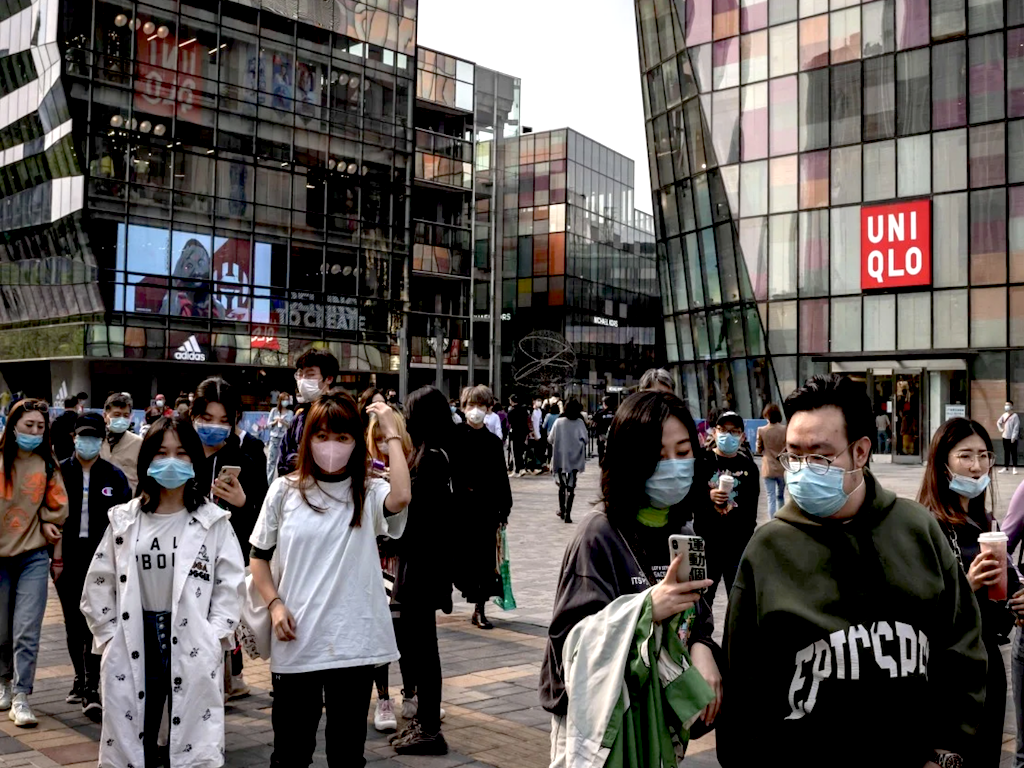3 Mins Read
As various cities return to normal as coronavirus lockdowns begin to ease, long queues and increased foot traffic in stores have been fuelled primarily by “revenge shoppers” who have been deprived for months. The phenomenon is most marked in a number of Chinese cities, where shoppers have been flocking to luxury brands for spending sprees. While stores may be relieved after months of economic downturn, it might not be such good news for the planet, and scientists warn that returning to business-as-usual could bring about worse, even deadlier pandemics to come.
“Revenge shopping”, a term first invented in China, refers to the overindulgence in spending and consumption by shoppers who have been patiently awaiting quarantines, lockdowns and social distancing measures to ease. Fuelled by revenge shoppers, long queues and a spike in sales have been recorded in various major brand outlets in a number of Chinese cities, such as Apple, Gucci, Nike and Estée Lauder among others.
In Guangzhou, the French luxury fashion brand Hermes reportedly enjoyed US$2.7 million in sales on the day it reopened on April 11, representing the biggest single-day shopping at a luxury brand store in the country.
According to the China Commerce Association for General Merchandise, almost 80% of shopping mall merchants have already observed customer foot traffic at levels more than half of what it was before the Covid-19 outbreak, signalling a healthy and speedy return to normal, mainly fuelled by revenge shoppers.
Businesses are egging revenge shoppers on too, with shopping malls and retail brands themselves giving away vouchers to encourage the phenomenon. Chinese electronics brand Suning and Gome Electrical Appliances are going to hand out coupons with US$17 million throughout the month, for example, while e-commerce giant JD.com will be giving out an astonishing US$211 million worth.
Local governments are further fuelling the return of shopping by issuing prepaid coupons, with at least 30 cities across the country reportedly having issued over US$706 million spending vouchers in total to residents, according to the SCMP.
While revenge shopping might be good news for immediate economic recovery, the slew of scientific evidence suggests that if unsustainable overconsumption continues, the world will have to battle deadlier and more destructive pandemics in the future.
In a damning new article published in late April, the world’s top wildlife experts and scientists said that there is only one “single species” responsible for Covid-19 – humans – and warned that pandemics are a “direct consequence of…our global financial and economic systems that prize economic growth at any cost.”
According to the scientists, the combination of rampant deforestation, exploitation of animals and intensive urbanisation has created a “perfect storm” for deadly diseases to spillover.
The fashion industry, which already contributes 10% of global carbon emissions, is also a major driver of waste, unsustainable agricultural production and water contamination that causes mass habitat loss and harms wildlife. With revenge shopping on the rise, it is likely that the bounce-back in demand for fashion will reignite these environmentally destructive practices that make pandemics more likely.
Many fashion brands have also faced controversy in recent weeks for failing to pay supply chain employees for completed orders placed prior to coronavirus lockdown and store closures. XR Fashion Action, a global climate advocacy group calling to boycott new clothing, highlighted the humanitarian crisis in a recent post, and called on consumers to ditch shopping as a protest against both social and environmental injustices.
Governments must take a “One Health” approach, according to the group of scientists. Given that public health is intimately connected to the health of wildlife, environment and animals, it is vital that every industry and sector overhauls unsustainable practices. Revenge shopping simply needs to go.
Lead image courtesy of AFP.




